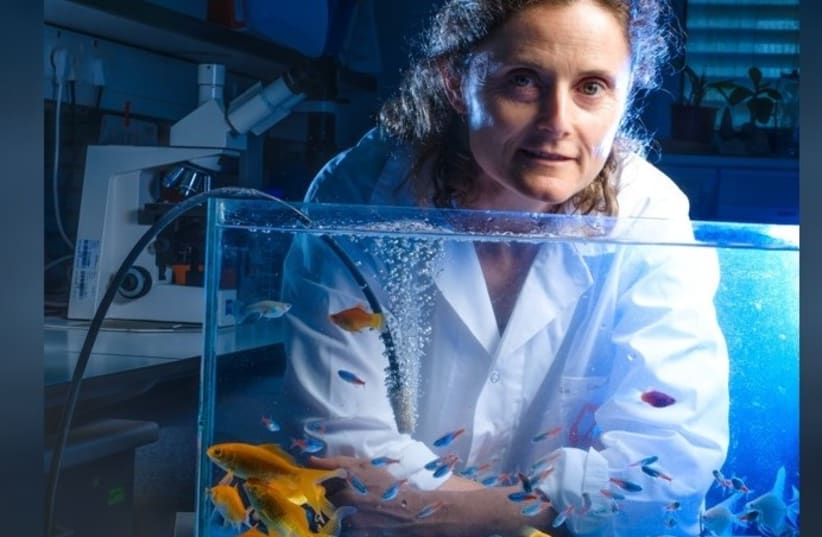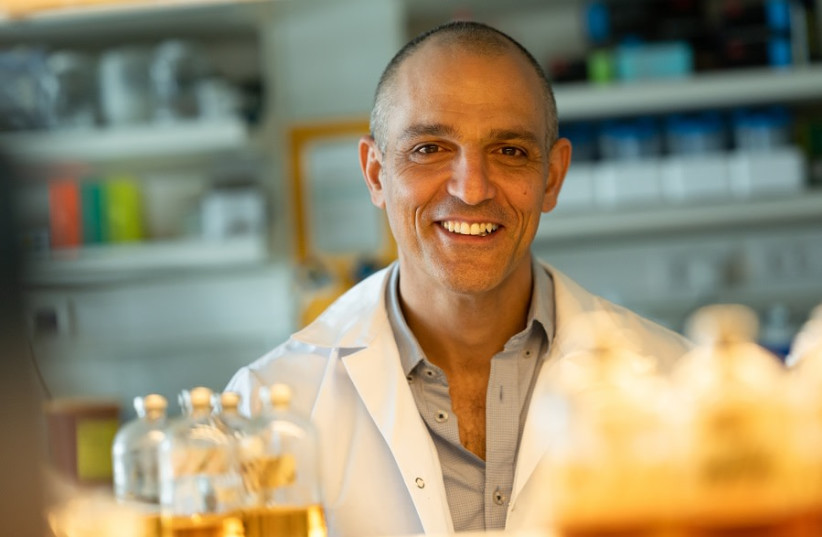The world is moving away from meat. But people still need quality animal protein to stay healthy and strong. One solution is fish. However, the fish in our seas are being depleted. The future, therefore, is aquaculture – fish grown in ponds.
How can we keep fish healthy, farm them in the most efficient way and reduce the environmental impact of raising fish?
Researchers in Ben-Gurion University’s new School for Sustainability and Climate Change are helping to find solutions.
Dina Zilberg, an associate professor in the French Associates Institute for Agriculture and Biotechnology of Drylands at the Jacob Blaustein Institutes for Desert Research, told The Jerusalem Post that fish consumption around the world is already on the rise.
“Fish is a sustainable source of protein compared to beef,” Zilberg said.
She explained that fish are “efficient” animals in that they live in the water and therefore use less energy. Moreover, the amount of food they require to produce edible meat is low compared to land animals: One kilo of feed will produce about one kilo of fish. However, Zilberg said that the world cannot rely on oceans and other natural bodies of water to provide the quantity of fish that is needed. Instead, “we have to start raising fish.”
Aquaculture is raising fish in man-made ponds. It is the fastest growing sector of the agriculture industry, she said.
According to a report by the World Bank and the Food and Agriculture Organization of the United Nations, by 2030, it is estimated that more than 60% of fish for food will come from aquaculture rather than wild catches.
But this field is not without challenges, according to Prof. Itzhak Mizrahi of BGU’s Faculty of Life Sciences and the National Institute for Biotechnology in the Negev. And this is where scientists come in.
“We hope to increase our ability to support food security with fish and decrease the environmental impact of raising them – mainly aiming at increasing feed efficiency – the efficiency at which fish digest their food and the survival rates in aquaculture ponds,” he said.
Another concept is infusing the fish’s commercial feed with microalgae to keep the fish healthier.
A study that Zilberg’s team recently completed showed that doing so elevated the expression of genes related to inflammatory and immune responses in fish, demonstrating the potential of microalgae and their active ingredients (like arachidonic acid and dihomo-γ-linolenic acid) in improving immune competence and resistance to bacterial infection.
Another project is examining if fish can be raised in treated wastewater – and Zilberg said they found that this is feasible.
Finally, they are doing work on how best to grow fish in “harsh environments,” Mizrahi said – something which could become increasingly relevant with global warming. As water temperatures increase, some fish species could struggle to survive.
Mizrahi, who studies microbiomes, discovered that the functionality of fish’s core microbiomes has a strong impact on how they survive and operate.
“Fish have microbial communities in their guts, called gut microbiomes, which our findings suggest affect the fish’s ability to cope with a changing environment,” he said. In a recent effort, his team found a selection of microbes that support the well-being of fish and their ability to survive in harsh environments.
About 690 million people globally are undernourished, according to the United Nations. An aquaculture system, said Mizrahi, could make a solid source of protein and other nutrients better available to the masses.
For more information: Ben-Gurion University
This article was written in cooperation with Ben-Gurion University

